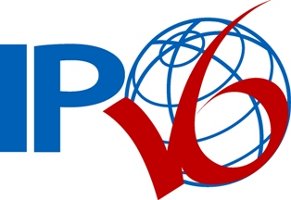Expanding The Internet Thru IPv6
 Internet Protocol (IP) addresses are the means by which computers and some other equipment uniquely identify themselves in the Internet. At present, almost all users utilize IP version 4 (IPv4) for their addresses in the Internet. IPv4 has more than four (4) billion possible address combinations but even with so many, they are being used up so fast that statistics show it would be exhausted by end of 2011.
Internet Protocol (IP) addresses are the means by which computers and some other equipment uniquely identify themselves in the Internet. At present, almost all users utilize IP version 4 (IPv4) for their addresses in the Internet. IPv4 has more than four (4) billion possible address combinations but even with so many, they are being used up so fast that statistics show it would be exhausted by end of 2011.
Internet Protocol version 6 (IPv6) is the new protocol developed to ensure the continued growth of the Internet. While IPv4 has 32-bit addresses, IPv6 uses 128 bits and thus supports 2128 (about 3.4×1038) addresses which is an extremely large number of addresses allowing the Internet to expand and industries to develop products that will use it. The need to deploy IPv6 now that IPv4 will get exhausted soon is an accepted fact and computer scientist and technologist agree that it is an easy thing to do. What is difficult in the shift is the transition period when IPv4 are still in use and it need to communicate to its successor, the IPv6.
The situation is that IPv4 cannot communicate directly with IPv6 and vice-versa so in the transition from IPv4 to IPv6 which must happen soon if not now, new interface wares called dual stack device, IPv4/IPv6 translation or IPv4 tunneling of IPv6 will have to be deployed so that IPv4 and IPv6 systems will be able to communicate with each other. It is this situation that will make the transition time shorter or longer depending on how much one is willing to spend for the wares needed during the period. Some people knowledgeable on the issue say a period of ten (10) years from 2010 would be a reasonable transition time.
IPv6, when fully implemented, will result not only in almost infinite expansion of the Internet. Security is another issue that can be handled better in IPv6 than in the current IPv4 systems. Voice over Internet Protocol (VoIP) is another technology that will benefit well in IPv6 because transparent connections is now 100% possible in the protocol. It is said that almost all sectors are bound to benefit when IPv6 is fully implemented. Let us keep our fingers crossed that IPv6 would likewise be beneficial to the i-café industry.




an I-café, as any small business enterprise (SME), will automatically benefit from IPv6 especially in the set-up of routers and assignment of IPv6 addresses to customers and use of secure access to VPN. The best that will happen to i-cafés is the deployment of Microsoft DirectAccess, listen to Devrim, the engineer of this awesome secure access solution, making VPN a technology of the past and converting a café to a corporate office:
http://edge.technet.com/Media/DirectAccess-with-Devrim
I am actually planning to use IPv6 on a server that I will setup to give shell access to some people. There are already some advocates of IPv6 that offers free IPv4 to IPv6 tunneling servers. I just need to learn how to implement it. That will actually solve my problem with a single dynamic public IP address (I need unique IP for each account).
.-= dodimar´s last blog ..Security breach, wallets missing.. =-.
Get gogo6’s tunnel 🙂 http://www.gogo6.com
I will suggest SixXS but they do not have POPs available in our region so don’t bother.
What I like with SixXS is we can request a subnet but oh well, our region is too slow when it comes to IPv6 testing and adoption, I won’t be surprised if we’re suddenly blocked out from cyberspace.